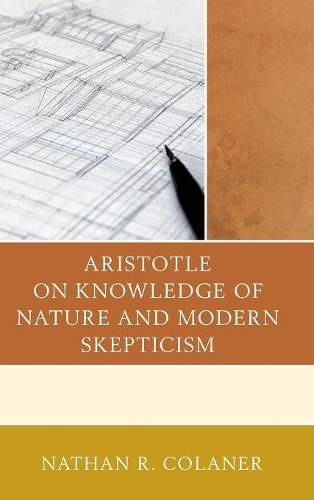
Aristotle on Knowledge of Nature and Modern Skepticism
(Hardback)
Publishing Details
Aristotle on Knowledge of Nature and Modern Skepticism
By (Author) Nathan R. Colaner
Bloomsbury Publishing PLC
Lexington Books
5th November 2014
United States
Classifications
Tertiary Education
Non Fiction
Philosophy: epistemology and theory of knowledge
185
Physical Properties
Hardback
210
Width 160mm, Height 234mm, Spine 21mm
435g
Description
Confronting the scientific revolutions dismissal of Aristotles physics and epistemology, Nathan R. Colaner revives this foundational philosophers work to expose within it the underpinnings of modern philosophers most common intuitions about knowledge. After Aristotles picture of reality had been judged obsolete by the physics of the scientific revolution, modern Western epistemologists fumbled along with doctrines that had little to do with everyday life. These included Descartes notion of the evil genius, Humes claim that we cant know anything that we are not presently observing, and Kants rescue of knowledge in the context of idealism. In Aristotle on Knowledge of Nature and Modern Skepticism, Colaner articulates a notion of knowledge that is characteristically Aristotelian without being dependent on his metaphysics. Simultaneously, Colaner places Aristotle in dialogue with modern thinkers to create a bridge between classical and modern philosophy and reinstate Aristotles prominence in the discipline of epistemology.
Reviews
Noting that fresh ideas may be found in supposedly stale places, Colaner argues that Aristotles epistemology, stripped from its historically situated cosmological frame, might be of more than historical significance, and thus deserves serious rethinking. He proceeds to defend that thesis throughout the book with remarkable dexterity and success. -- M. Andrew Holowchak
Author Bio
Nathan R. Colaner is instructor in the Departments of Philosophy and Management at Seattle University.
